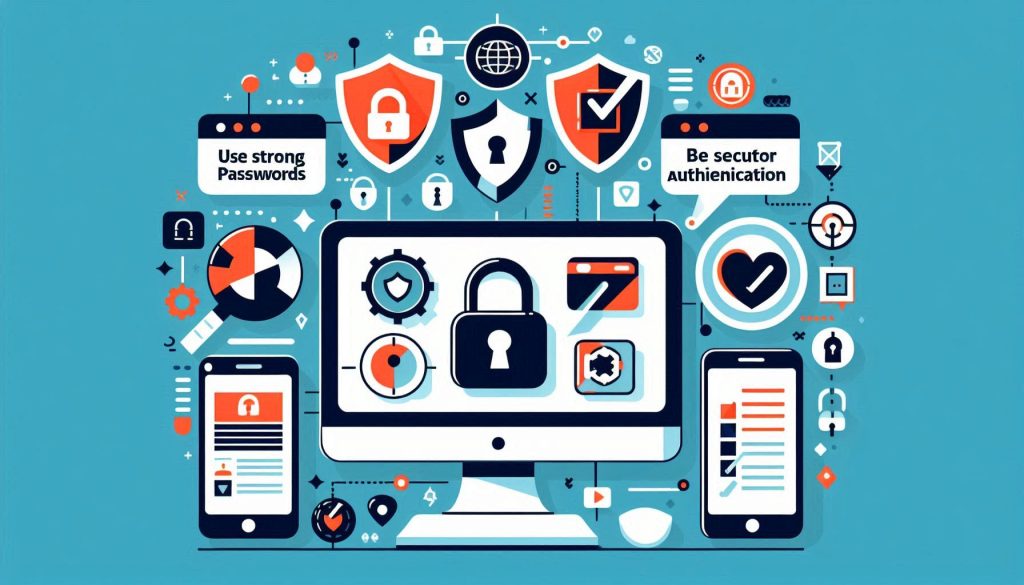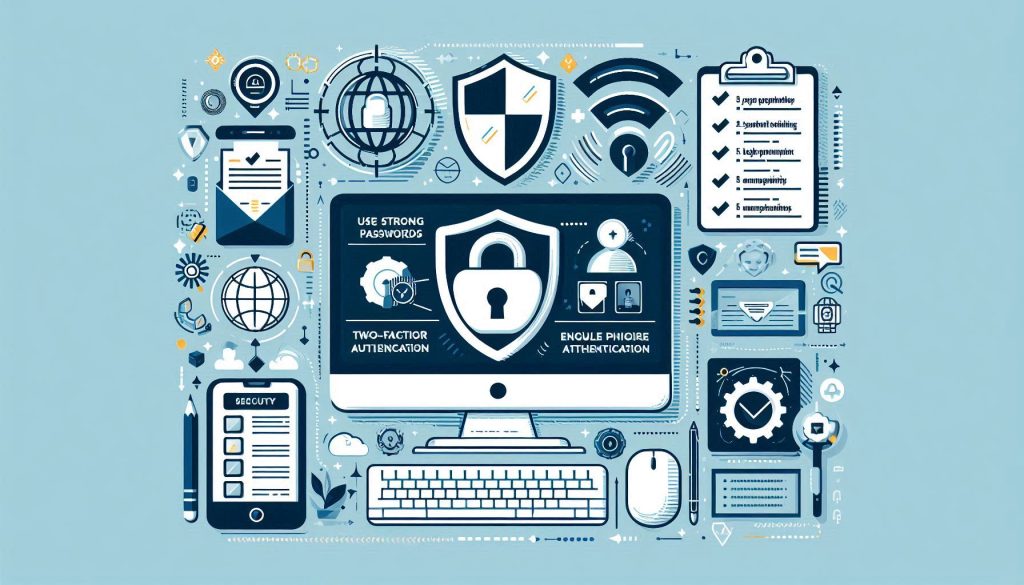
In an increasingly digital world, safeguarding your online privacy is crucial. With personal data being more valuable than ever, protecting your information from unauthorized access and misuse is essential. Here’s a comprehensive guide to help you secure your online privacy and maintain control over your digital footprint.
1. Use Strong, Unique Passwords
Overview: Weak or reused passwords can easily be compromised, leading to unauthorized access to your accounts.
Tips:
- Create Strong Passwords: Use a mix of letters, numbers, and special characters. Aim for at least 12 characters.
- Avoid Reuse: Don’t use the same password across multiple accounts.
- Use a Password Manager: A password manager can generate, store, and manage strong passwords for all your accounts.
Benefits: Strong, unique passwords protect your accounts from being easily hacked or accessed.
2. Enable Two-Factor Authentication (2FA)
Overview: Two-factor authentication adds an extra layer of security by requiring a second form of verification in addition to your password.
Tips:
- Activate 2FA: Enable 2FA on all accounts that offer it, such as email, social media, and banking.
- Use Authenticator Apps: Apps like Google Authenticator or Authy provide secure, time-based codes for 2FA.
Benefits: Even if your password is compromised, 2FA adds an additional barrier to unauthorized access.
3. Keep Software and Systems Updated
Overview: Regular updates patch security vulnerabilities that could be exploited by cybercriminals.
Tips:
- Enable Automatic Updates: Ensure your operating system, software, and apps are set to update automatically.
- Check for Updates Regularly: Manually check for updates if automatic updates are not available.
Benefits: Updates protect your devices from known vulnerabilities and security threats.

4. Be Cautious with Public Wi-Fi
Overview: Public Wi-Fi networks can be insecure and prone to interception by hackers.
Tips:
- Avoid Sensitive Transactions: Refrain from accessing sensitive information or performing financial transactions over public Wi-Fi.
- Use a VPN: A Virtual Private Network (VPN) encrypts your internet connection, making it safer to use public Wi-Fi.
Benefits: Protects your data from being intercepted or accessed by unauthorized individuals on public networks.
5. Use Secure Websites
Overview: Websites that don’t use encryption can expose your data to potential breaches.
Tips:
- Look for HTTPS: Ensure websites use HTTPS (indicated by a padlock symbol in the browser’s address bar) before entering personal information.
- Avoid Insecure Sites: Steer clear of sites that don’t use encryption or have suspicious URLs.
Benefits: Ensures that data transmitted to and from websites is encrypted and secure.
6. Be Wary of Phishing Scams
Overview: Phishing scams trick you into revealing personal information by masquerading as legitimate entities.
Tips:
- Verify Requests: Don’t click on links or open attachments in unsolicited emails or messages. Verify the source before providing any information.
- Check URLs: Ensure that the URL of a website matches the official site and is secure (HTTPS).
Benefits: Protects you from falling victim to scams designed to steal your personal information.
7. Manage Social Media Privacy Settings
Overview: Social media platforms can expose personal information if privacy settings are not properly configured.
Tips:
- Review Privacy Settings: Adjust privacy settings on social media accounts to limit who can see your posts and personal information.
- Be Selective with Sharing: Avoid sharing sensitive information publicly and be mindful of what you post.
Benefits: Helps control who has access to your personal information and online activities.
**8. Regularly Monitor Your Accounts
Overview: Regular monitoring helps detect unauthorized activities and potential security breaches early.
Tips:
- Check Account Statements: Regularly review bank statements, credit reports, and account activity for any suspicious transactions.
- Use Security Alerts: Set up alerts for unusual account activities or login attempts.
Benefits: Allows you to promptly address and mitigate any security issues or breaches.
9. Secure Your Devices
Overview: Physical security of your devices is as important as digital security.
Tips:
- Use Device Lock: Set up passwords, PINs, or biometric locks on your devices.
- Enable Remote Wipe: In case your device is lost or stolen, use remote wipe features to erase data.
Benefits: Prevents unauthorized access to your personal data if your device is lost or stolen.
10. Be Mindful of App Permissions
Overview: Apps may request access to more data than necessary, posing potential privacy risks.
Tips:
- Review Permissions: Check and manage app permissions regularly to ensure apps only have access to necessary information.
- Uninstall Unused Apps: Remove apps you no longer use to limit potential data access.
Benefits: Reduces the risk of unnecessary data exposure and enhances privacy.
Conclusion
Securing your online privacy requires vigilance and proactive measures. By implementing these tips—such as using strong passwords, enabling two-factor authentication, and being cautious with public Wi-Fi—you can significantly enhance your digital security. Stay informed about best practices and regularly review your privacy settings to maintain control over your personal information.
Feel free to share these tips with others and make online privacy a priority in your digital life.

